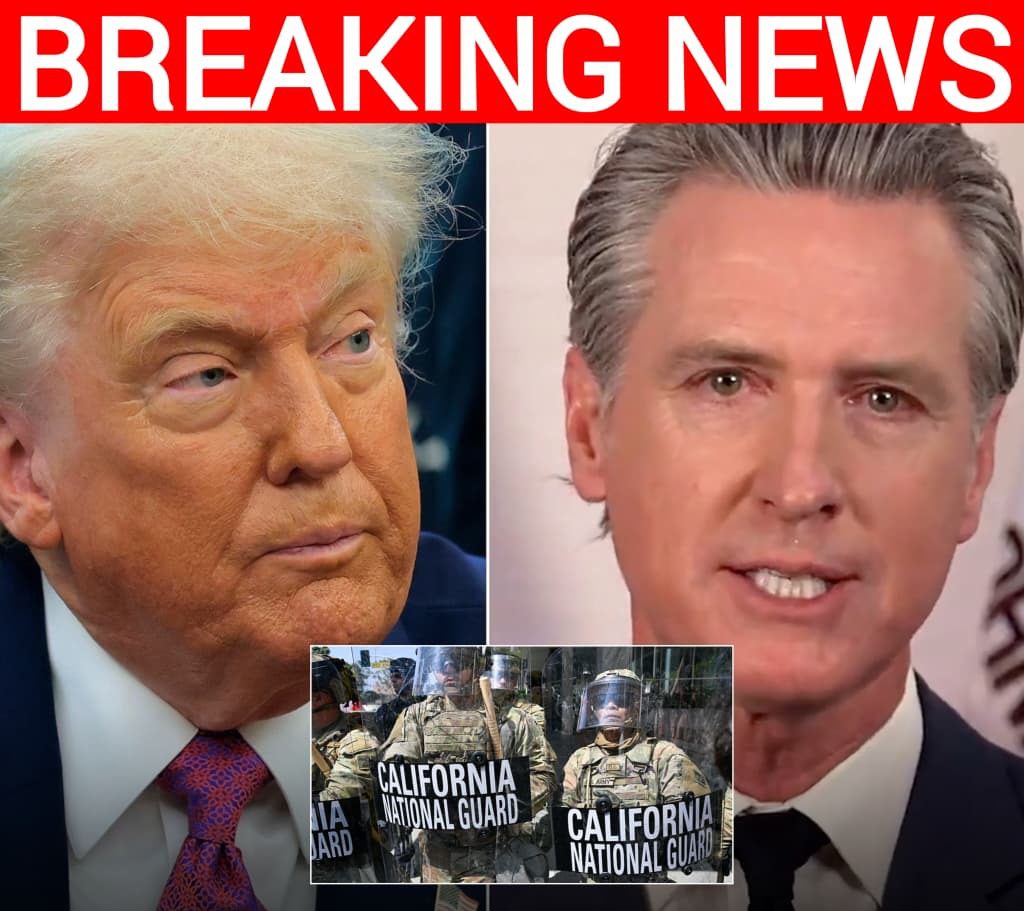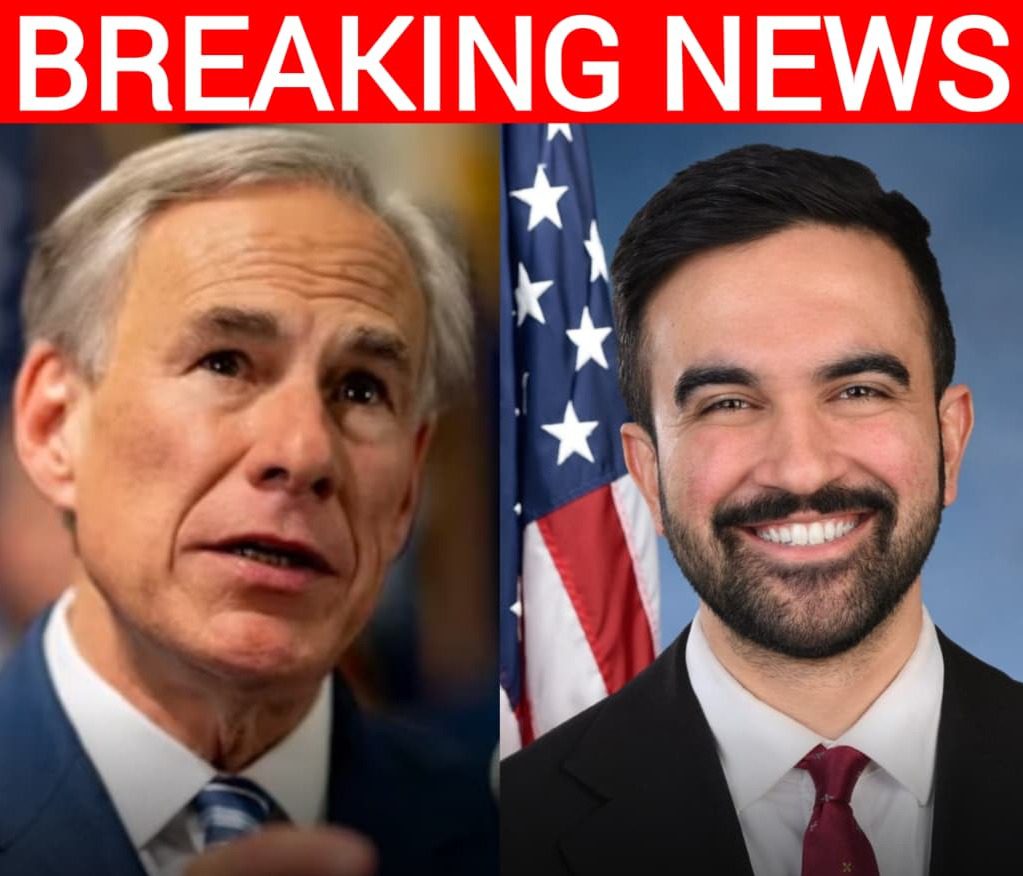9th Circuit Delivers Stunning Blow to Gavin Newsom — Upholds President Trump’s Authority to Federalize California National Guard for Immigration Enforcement
In a major legal and political defeat for California Governor Gavin Newsom, the 9th Circuit Court of Appeals has upheld President Trump’s authority to federalize the California National Guard to support immigration enforcement operations along the southern border. The decision, issued on October 22, 2025, marks a significant victory for the Trump administration and a major blow to one of its fiercest critics.

The case, Newsom v. Trump, centered on the governor’s lawsuit challenging the president’s June 7 order directing National Guard units to assist Immigration and Customs Enforcement (ICE) and Customs and Border Protection (CBP) in immigration operations across California. Newsom had argued that the move violated state sovereignty and exceeded federal powers. But the 9th Circuit disagreed, reaffirming that the president has broad statutory discretion to mobilize the National Guard when national security or law enforcement demands arise.
The three-judge panel not only upheld the stay on a lower court’s injunction against Trump’s order but also denied Newsom’s request for a full en banc rehearing. The decision effectively clears the way for federal coordination between California-based Guard units and federal immigration agencies — something Newsom had vowed to block at all costs.
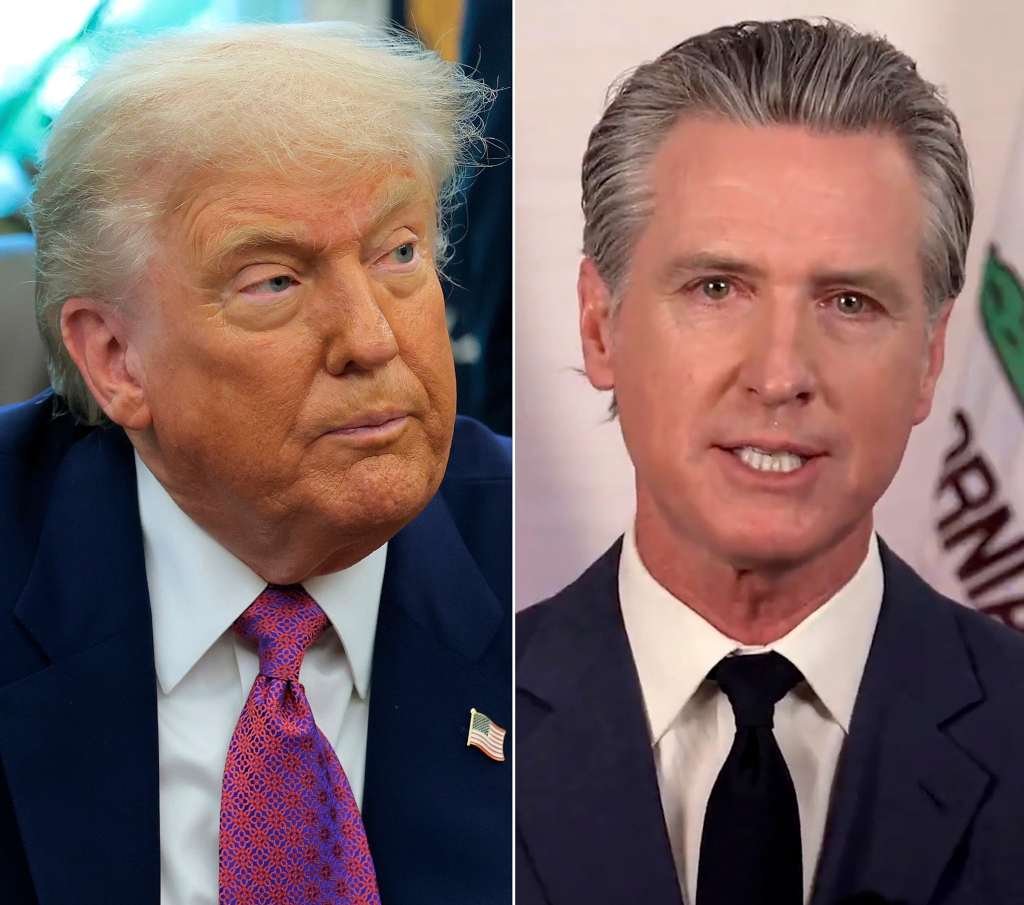
The court’s opinion leaned heavily on the Insurrection Act and Title 32 of the U.S. Code, which grant the president sweeping authority to deploy Guard forces in times of “imminent threat” or “obstruction of federal law.” In this case, the administration successfully argued that the escalating migrant influx and rising cartel activity justified federal intervention, particularly in areas where state cooperation had broken down.
President Trump celebrated the ruling as “a tremendous win for law and order,” telling reporters that the decision would “restore national unity and protect our borders.” He praised the National Guard’s readiness and said the ruling validated his long-standing position that the federal government must act decisively when states refuse to enforce immigration law.
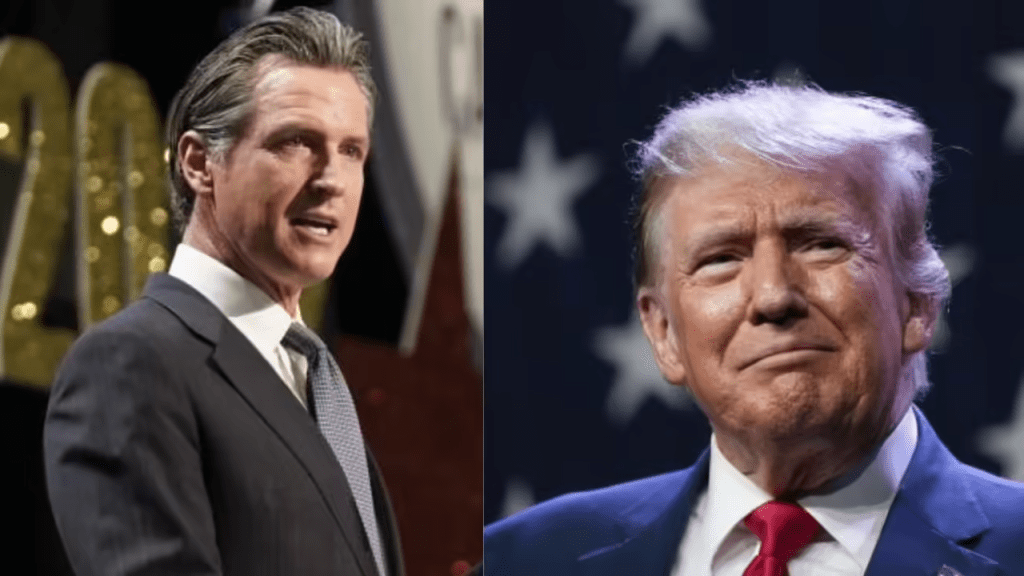
Governor Newsom, meanwhile, issued a fiery statement denouncing the ruling as “an assault on state rights” and vowing to explore “every legal and constitutional option” to resist what he described as federal overreach. However, legal experts noted that the court’s decision leaves little room for further appeal short of the U.S. Supreme Court — and that the justices are unlikely to intervene given existing precedent affirming presidential authority over the Guard.
The political implications are hard to ignore. For Newsom, who has positioned himself as a national counterweight to Trump, the ruling is the latest in a string of legal setbacks, coming just months after federal courts dismissed his lawsuit over asylum policy enforcement and sanctuary city funding. For Trump, the victory cements a broader narrative of federal strength and policy consistency as his administration continues to expand immigration operations across California and other border states.

In Sacramento, the decision has sent shockwaves through the state legislature, where several Democratic lawmakers have expressed concern over the precedent it sets. Yet public reaction has been divided. Supporters of Trump’s order have framed the move as a necessary step to protect national borders and prevent chaos at the southern frontier. Critics, meanwhile, fear it could erode state control and pave the way for broader federal takeovers in the future.
The ruling also underscores the growing friction between state and federal authority over immigration policy — a conflict that has intensified since Trump’s return to office. The administration’s ongoing efforts to crack down on sanctuary policies, accelerate deportations, and strengthen the border have faced resistance from several Democratic governors, but the courts have repeatedly sided with the federal government.
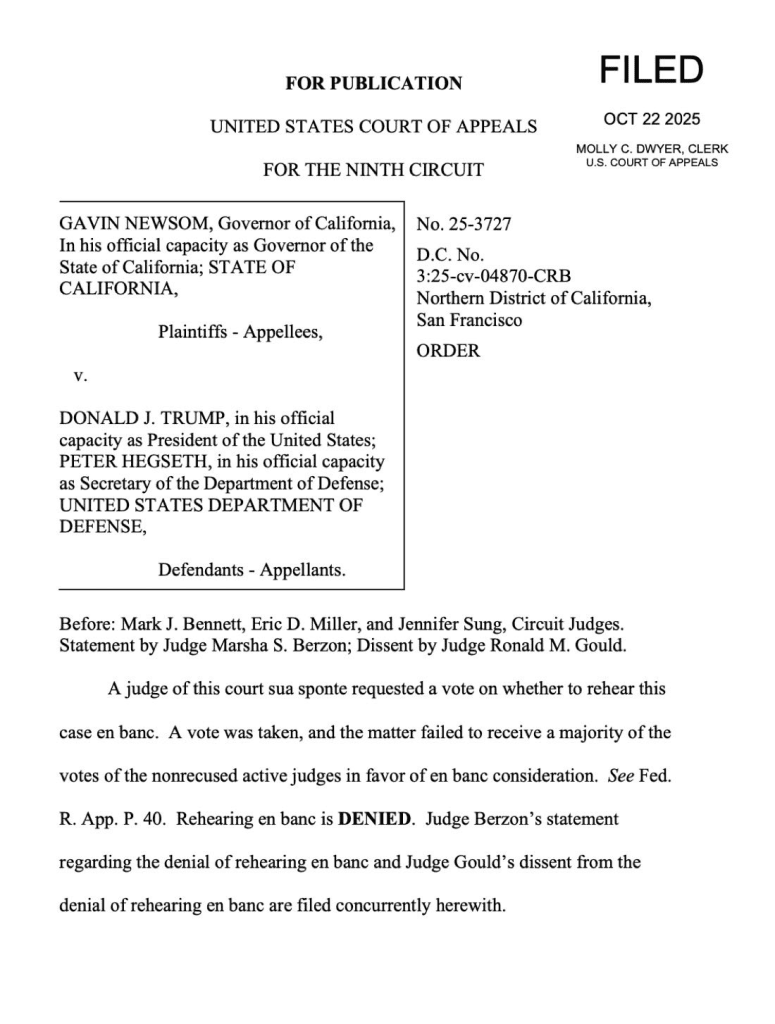
For now, the 9th Circuit’s decision stands as a clear statement of federal supremacy in immigration enforcement. The California National Guard will begin coordination with ICE and CBP within the coming days, according to Pentagon sources, with deployments expected in regions near San Diego, Imperial County, and the Central Valley.
As the ruling reverberates through political and legal circles, one thing is clear — this moment marks a turning point in the battle over immigration power in America. For Gavin Newsom, it’s another reminder of the limits of state defiance. For President Trump, it’s a resounding affirmation that the federal government’s hand still carries the final word.
